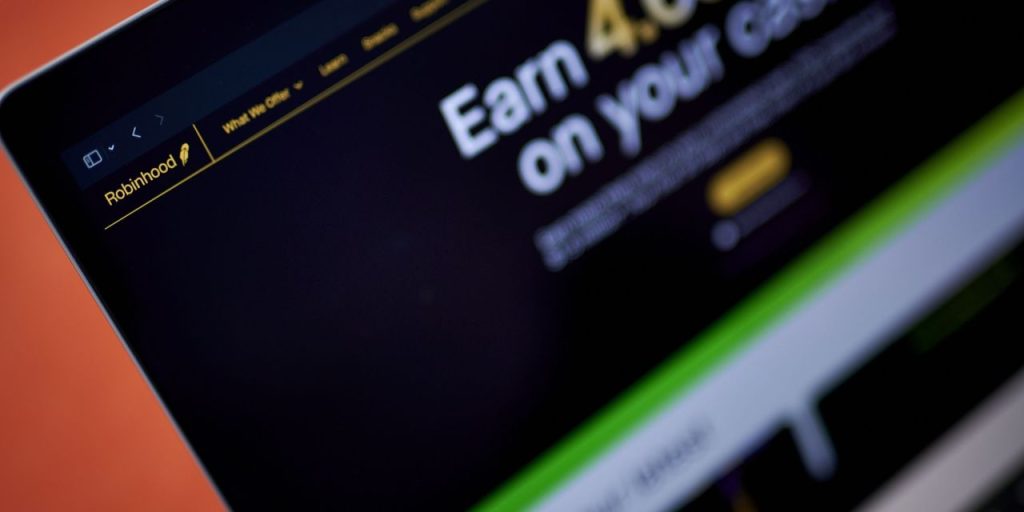Robinhood Markets
posted its first profitable quarter, which CEO Vlad Tenev called “a significant milestone” that beat analysts’ expectations for a slight loss.
That said, trading activity in the second quarter continues to fall, with 10.8 million monthly active users, down by 1 million from the prior quarter. That cut into transaction revenue, causing it to fall by 7% sequentially.
The slowdown may be one reason the stock was slumping after the results. While Robinhood (ticker: HOOD) has risen 20% in the past month, shares were down 6% in premarket trading. The stock is down more than 60% from its initial public offering price in 2021 as customer activity has declined from the frenzied stock-trading during the pandemic.
Robinhood posted 3 cents of earnings on $486 million in revenue, versus expectations for a 1-cent loss on $473 million in revenue. One reason the company was profitable was that its founders didn’t take some stock compensation, leading to a decrease in operating expenses. Its customer total rose by 70,000 to 23.2 million.
The company’s new experiment in 24-hour trading is off to a strong start, said CFO Jason Warnick in a phone call release with reporters after the earnings.
“We’re seeing a lot of interest, especially around earnings season,” he said. The company did not release data on how many customers have traded after-hours or how much money they’re trading. Customers can now trade 52 stocks 24 hours a day, five days a week.
Robinhood historically has made most of its money from customer transactions, earning a cut of the spread that market-makers take when they execute trades. But with trading slowing, the company has made an increasing share of its revenue by earning interest on customer deposits and other cash. Its net interest income rose 13% sequentially.
Robinhood’s new retirement offering has attracted over 325,000 customers. The company matches 1% of customer deposits in their retirement accounts, and is now offering a 3% match for its paying gold members, Warnick said.
Robinhood also faces risks—and opportunities—from the Securities and Exchange Commission’s latest crackdown on cryptocurrencies. The SEC has charged its competitor
Coinbase
(COIN) with selling cryptocurrencies that were allegedly unlicensed securities—charges that Coinbase disputes. Robinhood delisted some coins in the second quarter. Warnick declined to comment on its discussions with the SEC over its coin listings.
Write to Avi Salzman at [email protected]
Read the full article here















